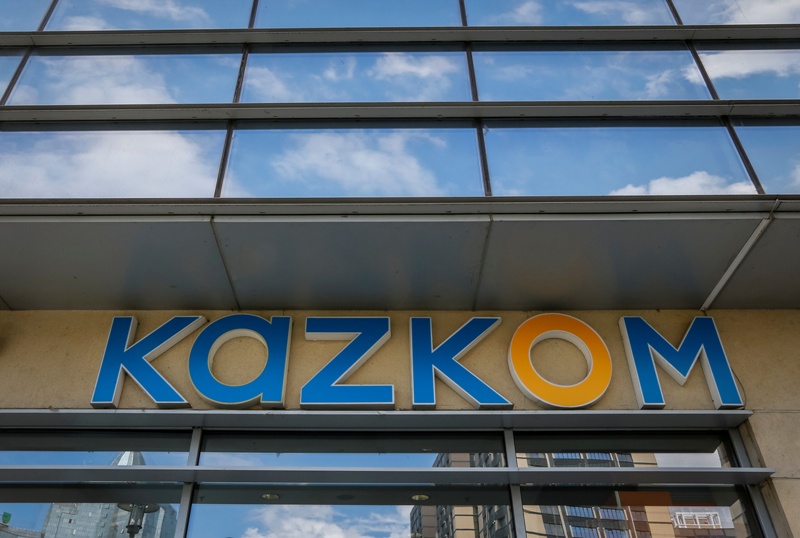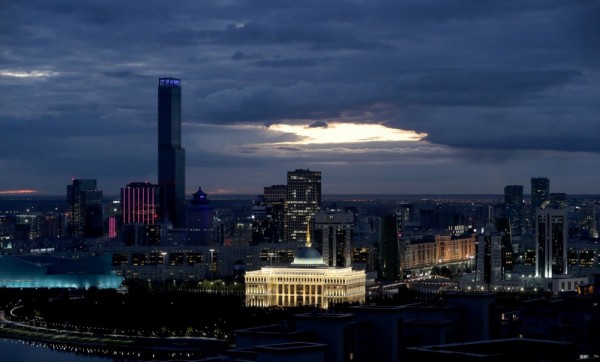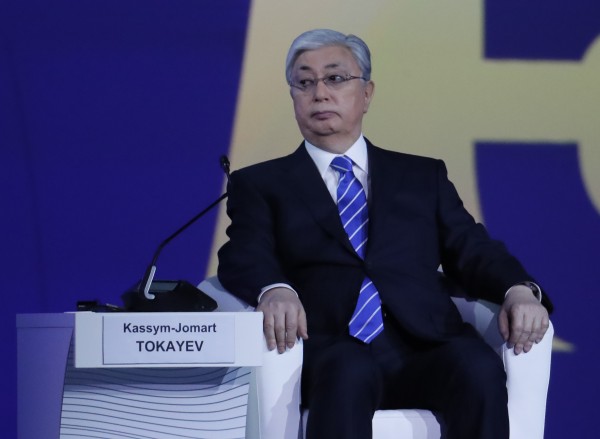The International Press Institute (IPI) today welcomed a Kazakh court decision suspending the 18-month prison sentence of journalist Guzyal Baidalinova on libel-related charges.
The Almaty Court of Appeals suspended Baidalinova’s sentence on July 12, but ordered her not to leave Kazakhstan’s largest city, according to reports. She had been detained since her arrest in December 2015.
Baidalinova, the owner and editor of the online news portal Nakanune.kz, had been convicted in May 2016 of publishing false information about Almaty-based Kazkommertsbank in a series of articles published on Nakanune.kz as well as on the news site Respublika-kaz.info. The bank alleged it suffered losses of close to €400,000 as a result of the coverage.
“We welcome the Almaty Court of Appeals’s decision to suspend the disproportionate sentence against Guzyal Baidalinova,” IPI Director of Press Freedom Programmes Scott Griffen said. “Criminal law is inappropriate for handling allegations of defamation or the dissemination of false information, given the serious risk of a chilling effect on the free flow of information more broadly.”
He added: “There remains a clear potential for vested interests in Kazakhstan to abuse libel and similar laws to shield themselves from criticism and investigation. We continue to urge the Kazakh government to take steps to mitigate that potential, including by repealing relevant criminal laws in line with international standards.”
Alexander Krasner, a member of IPI’s Kazakh National Committee and the editor of Novaya Gazeta – Kazahkhstan, welcomed the court decision as a sign of progress in Kazakhstan’s implementation of human rights standards. Kranser said of Baidalinova that she had “consistently worked to raise awarenss of the authorities’ responsibility to meet the country’s commitments in the area of human rights and fundamental freedoms”.
The chair of IPI’s Kazakh National Committee, Seitkazy Matayev, is currently under house arrest following his arrest on charges of tax evasion and embezzlement in March 2016. IPI has urged the Kazakh authorities to release Matayev, calling the timing of the charges – shortly before parliamentary elections – “extremely suspicious”.
The case against Baidalinova has taken a number of dramatic turns. Two additional journalists charged in the matter, Rafael Balgin and Makhambet Auezov, held a press conference in Jaunary 2016 – shortly after Balgin had been freed on bail – in which they claimed that they and Baidalinova, along with the editor of Respublika-kaz.info, Irina Petrushova, had been paid to publish the Kazkommertsbank articles by a Kazakh businessman, Tair Kaldybaev.
Baidalinova and her lawyer had to sign nondisclosure agreements regarding the investigation according to Kazakh criminal procedure, leaving neither able to comment on the claims. No material evidence was presented to support the assertions of Balgin and Auezov.
Baidalinova was repeatedly denied bail while waiting for her trial to commence. Kaldybaev was sentenced to four-and-a-half years in prison for his involvement in the case and was found hanged in his prison cell on June 5, 2016 while waiting for his appeal hearing.
This is not the first defamation case that Kazkommertsbank had filed against Baidalinova. In September 2015, she was ordered to pay approximately €55,000 in damages after losing a suit in which the bank claimed her site published false information intimating it was involved in corruption.
In the present case, the bank and Baidalinova reportedly reached a settlement of approx. €270 for “moral damages”.
The detention and trial of Baidalinova are not the only recent examples of legal harassment of journalists in Kazakhstan. The newspaper Tribuna/Ashyk Alan was ordered on July 12 to pay damages of around 5 million Kazakh tenge (€13,300) to a former Almaty city official, Sultanbek Syzdykov, whom the paper had called “corrupt” in coverage related to alleged embezzlement during the 2011 Asian Winter Games. Other media covered the situation in a similar manner, but after Syzdykov paid back the amount he was alleged to have embezzled, he sued Tribuna/Ashyk Alan. The paper regularly covers sensitive issues, including land disputes, and some observers believe this most recent case was filed to push the paper to shut down.



